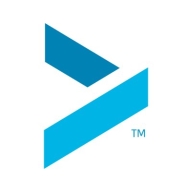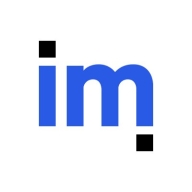

Imperva Application Security Platform and Cequence Security are competitors in the application protection space. Imperva has an advantage in threat detection and comprehensive security features, while Cequence shines with its API protection strength.
Features: Imperva offers robust threat intelligence, DDoS protection, and a wide range of security policies. Cequence is recognized for its API security capabilities, automated threat analysis, and strategic API protection. Both platforms provide distinct strengths, with Imperva focusing on extensive application protection and Cequence on API security.
Ease of Deployment and Customer Service: Imperva provides flexible cloud and on-premise deployment options, supported by responsive customer service, making integration straightforward. Cequence also delivers strong deployment options but may require a more tailored, strategic approach, which can be demanding for users.
Pricing and ROI: Imperva aligns its setup costs with its rich feature set, delivering significant ROI in broad security coverage. Cequence offers competitive pricing, particularly appealing to businesses emphasizing API security, delivering value through specialized solutions. While Imperva entails a more substantial initial investment, it offers extensive applicability, whereas Cequence delivers targeted ROI for API protection.
| Product | Market Share (%) |
|---|---|
| Imperva Application Security Platform | 13.9% |
| Cequence Security | 4.7% |
| Other | 81.4% |

| Company Size | Count |
|---|---|
| Small Business | 83 |
| Midsize Enterprise | 25 |
| Large Enterprise | 61 |
Cequence, a pioneer in API security and bot management, is the only solution that delivers Unified API Protection (UAP), uniting discovery, compliance, and protection across all internal, external, third-party APIs to defend organizations against attacks, business logic abuse, and fraud. Needing less than 15 minutes to onboard an API without requiring any instrumentation, SDK, or JavaScript integration, the flexible deployment model supports SaaS, on-premises, and hybrid installations. Cequence solutions scale to handle the most demanding government, Fortune and Global 500 organizations, securing more than 8 billion daily API interactions and protecting more than 3 billion user accounts.
The Cequence Unified API Protection (UAP) platform enables security teams to manage through the entire API protection lifecycle that includes support for discover, comply, and protect stages that defend against attackers and eliminates unknown and unmitigated API security risks. The Cequence UAP platform provides three integral components, API Spyder, API Sentinel, and API Spartan that target every stage of the API protection lifecycle, ensuring that customers have one platform to address all their API security issues.
API Spyder (Discover)
Cequence UAP starts with first understanding your API attack surface through API Spyder which discovers your external APIs across managed and unmanaged API infrastructure. This allows security teams to ensure that unmanaged APIs are brought under management to confirm they do not have security risks and have the proper API protection enabled. Once deployed, API Spyder provides a continuous mechanism to surface unmanaged shadow APIs that are newly implemented by internal departments but never notify the security team of their existence.
API Sentinel (Comply)
API Sentinel, a security posture management product enables security teams and development teams to work collaboratively to directly address surfaced security issues within your runtime APIs that could potentially lead to an API exploit. It can discover whether your APIs conform to Open API specifications, adhere to security and governance best practices, and test your pre-production APIs for vulnerabilities. API Sentinel lays the groundwork to ensure that you are fully aware of the risks inherent in your API applications and enables you to remediate critical security issues before they are exploited by an attacker.
Spartan (Protect)
Finally, API Spartan offers real-time detection and mitigation of automated threats and attacks, including those that are API-specific. Spartan is powered by an ML-based analytics engine that can determine in real time if application transactions are from malicious or legitimate end users. It can mitigate a wide variety of cyberattacks that include online fraud, business logic attacks, exploits, automated bot activity, and OWASP API Security Top 10 attacks.
Imperva Application Security Platform delivers comprehensive and continuous web threat protection. Renowned for its ease of use, it shields web applications and databases from various cyber threats while integrating seamlessly with cloud and on-premises environments.
Imperva Application Security Platform protects web environments by offering advanced security measures against threats like DDoS attacks, SQL injections, and cross-site scripting. As a robust web application firewall, it provides extensive monitoring and bot management capabilities. The platform integrates content delivery networks for enhanced performance and scalability, while real-time traffic analysis ensures consistent protection. Despite its strengths, improvements can be made in policy management and customization options. Users seek better integration with third-party tools and more competitive pricing models. The inclusion of AI for enhanced analytics is also anticipated.
What are the key features of Imperva Application Security Platform?Imperva Application Security Platform is implemented in industries needing strong database and application protection. Companies use it to enforce geolocation restrictions and manage bots, benefiting sectors like finance and e-commerce where data security and threat monitoring are critical. Its ability to protect and ensure data accessibility makes it integral to business operations prioritizing cyber resilience.
We monitor all Bot Management reviews to prevent fraudulent reviews and keep review quality high. We do not post reviews by company employees or direct competitors. We validate each review for authenticity via cross-reference with LinkedIn, and personal follow-up with the reviewer when necessary.